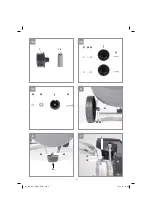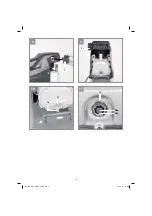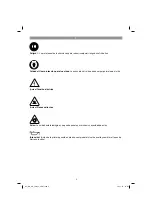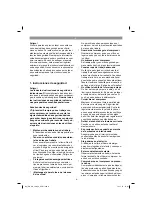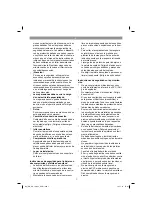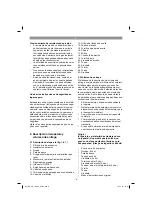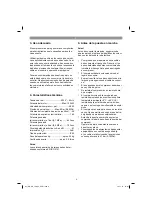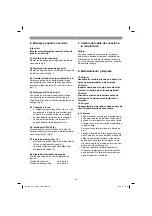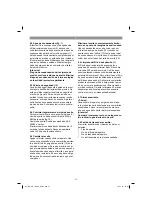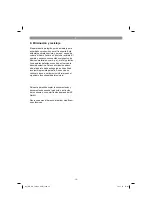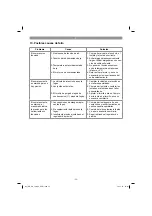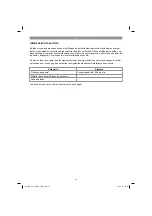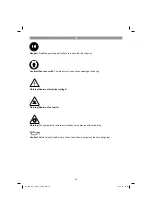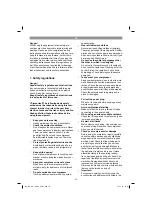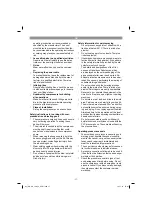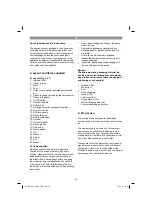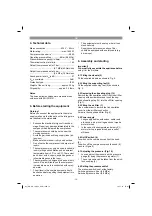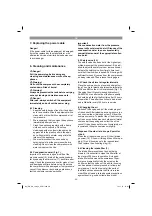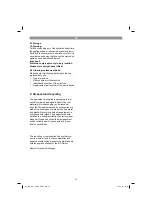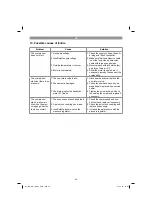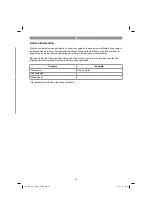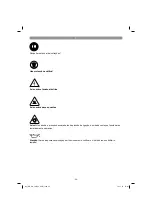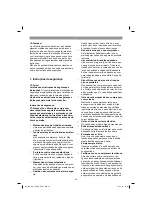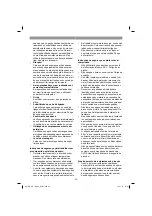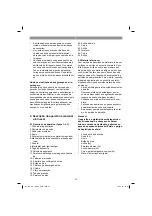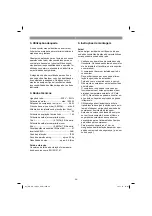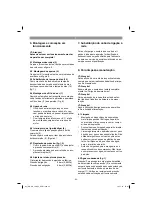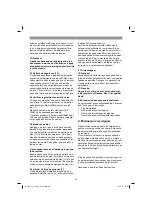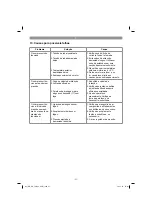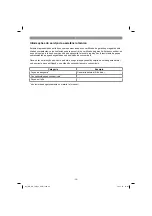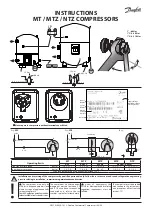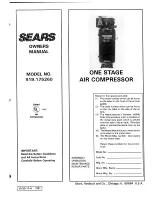
GB
- 17 -
operating instructions or recommended or
specified by the manufacturer. The use of
mounted tools or accessories other than tho-
se recommended in the operating instructions
or catalog may place your personal safety at
risk.
•
Leave all repairs to a qualified electrician
Repairs must be left strictly to qualified elec-
tricians or the user might suffer an accident.
•
Noise
Wear ear muffs when you use the compres-
sor.
•
Replacing the power cable
To prevent hazards, leave the replacement of
damaged power cables strictly to the manu-
facturer or a qualified electrician. There is a
risk of electric shock!
•
Inflating tires
Directly after inflating tires, check the pressu-
re with a suitable pressure gauge, for examp-
le at your filling station.
•
Roadworthy compressors for building
site operations
Make sure that all lines and fittings are suita-
ble for the maximum permissible operating
pressure of the compressor.
•
Place of installation
Set up the compressor on an even surface.
Safety instructions for working with com-
pressed air and blasting guns
•
The compressor pump and lines can become
very hot during operation. Touching these
parts will burn you.
•
The air which is sucked in by the compressor
must be kept free of impurities that could
cause fires or explosions in the compressor
pump.
•
When releasing the hose coupling, hold the
hose coupling piece with your hand. This way,
you can protect yourself against injury from
the rebounding hose.
•
Wear safety goggles when working with the
blow-out pistol. Foreign bodies or blown off
parts can easily cause injuries.
•
Do not blow at people with the blow-out pistol
and do not clean clothes while being worn.
Risk of injury!
Safety information for paint spraying
•
Do not process any paints or solvents with a
flash point below 55° C. There is a risk of ex-
plosion!
•
Do not heat up paints or solvents. There is a
risk of explosion!
•
If hazardous liquids are processed, wear pro-
tective filter units (face guards). Also, adhere
to the safety information provided by the ma-
nufacturers of such liquids.
•
The details and designations of the Ordi-
nance on Hazardous Substances, which
are displayed on the outer packaging of the
processed material, must be observed. Ad-
ditional protective measures are to be under-
taken if necessary, particularly the wearing of
suitable clothing and masks.
•
Do not smoke during the spraying process
and/or in the work area. There is a risk of ex-
plosion! Paint vapors are easily combustible.
•
Never set up or operate the equipment in the
vicinity of a fire place, open lights or sparking
machines.
•
Do not store or eat food and drink in the work
area. Paint vapors are harmful to your health.
•
The work area must exceed 30 m
3
and suffici-
ent ventilation must be ensured during spray-
ing and drying. Do not spray against the wind.
Always adhere to the regulations of the local
police authority when spraying combustible or
hazardous materials.
•
Do not process media such as white spirit,
butyl alcohol and methylene chloride with the
PVC pressure hose. These media will destroy
the pressure hose.
Operating pressure vessels
•
You must keep your pressure vessel in good
working order, operate the vessel correctly,
monitor the vessel, carry out necessary main-
tenance and repair work immediately and
meet the relevant safety precautions.
•
The supervisory authority may enforce essen-
tial control measures in individual cases.
•
A pressure vessel is not allowed to be used if
it has faults or deficiencies that can endanger
workers or third parties.
•
Check the pressure vessel for signs of rust
and damage each time before using. Do not
use the compressor with a damaged or rusty
pressure vessel. If you discover any damage,
then please contact the customer service
workshop.
Anl_RB_AC_190_24_SPK7.indb 17
Anl_RB_AC_190_24_SPK7.indb 17
19.11.15 15:01
19.11.15 15:01

